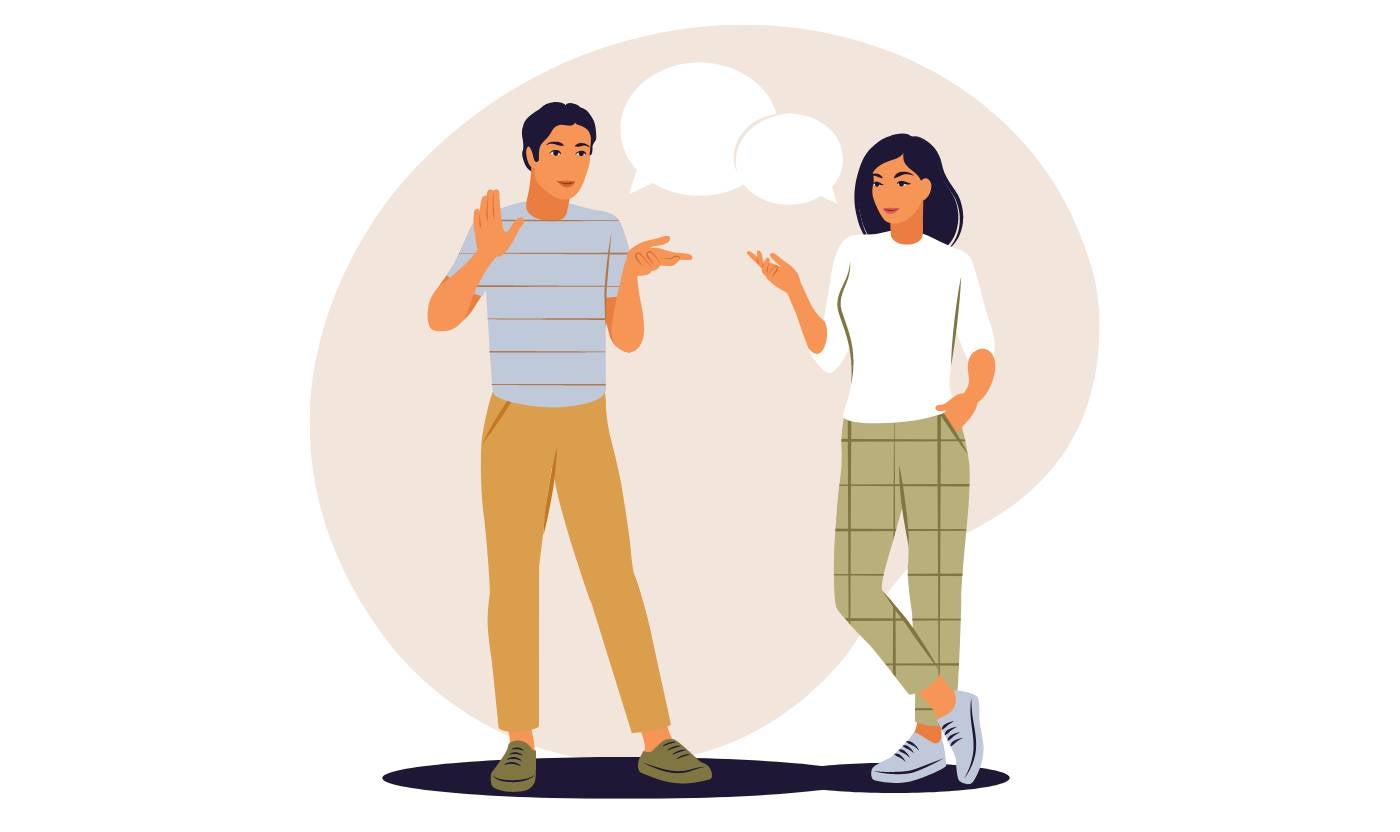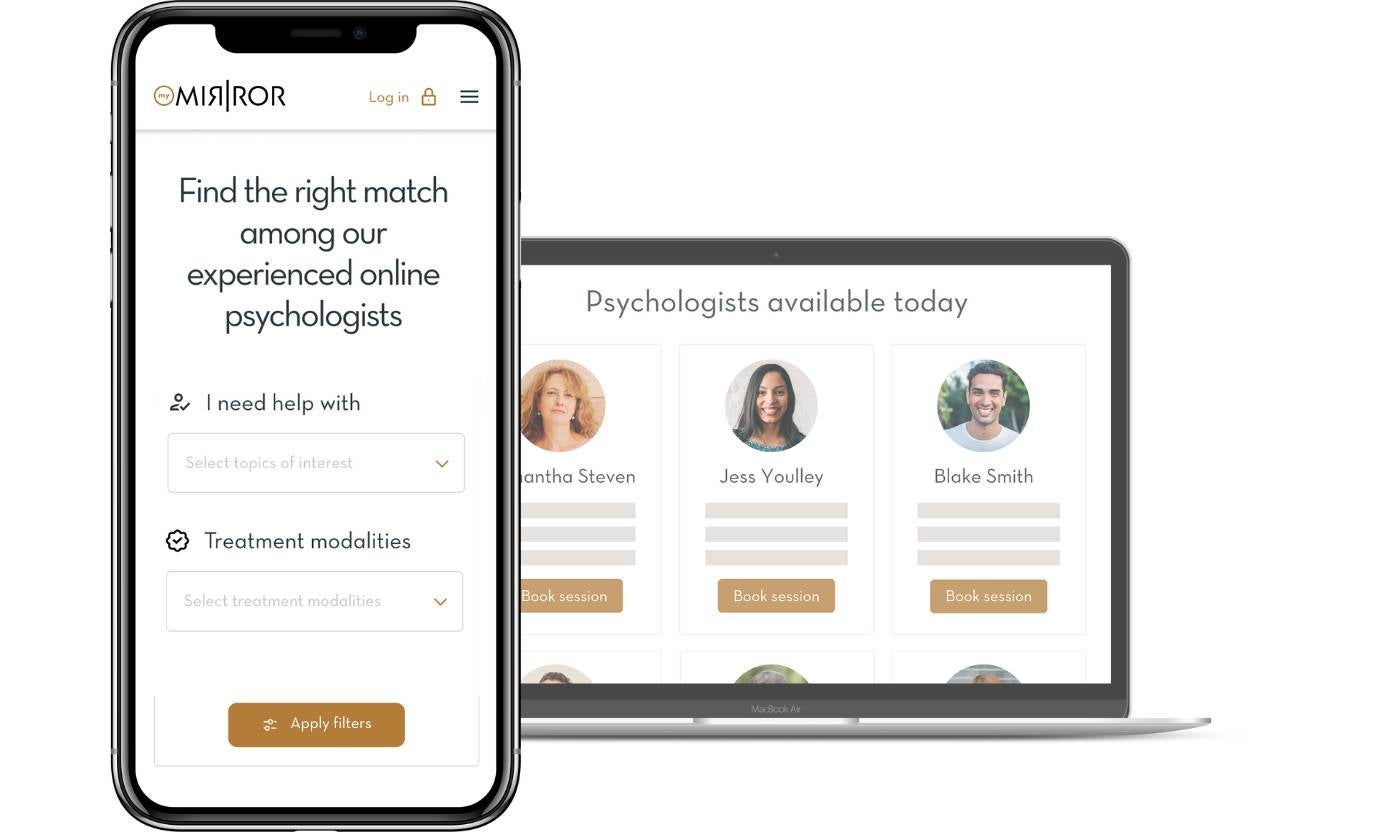Let’s talk about talk therapy. It’s a popular treatment method that’s used to address mental and emotional concerns, sometimes known as psychotherapy.
As the name might suggest, talk therapy involves the client and therapist discussing problems together, identifying areas of concern and helping the client see a positive change.
Talk therapies come in all shapes and sizes, with some types of talk therapy being better suited to specific issues than others. In this guide we’ll look into some of the most common types of talk therapy, the mental health difficulties they’re used to treat, and how to find the right talk therapy type for your presenting difficulty.

Cognitive Behavioural Therapy (CBT)
Cognitive behavioural therapy (CBT) is one of the most widely practised types of talk therapy. The main focus of CBT is to help clients recognise their negative thoughts and behaviours, and shift these unhelpful actions through constructive coping skills.
It’s based on the idea that our thoughts, feelings, and behaviours are all interconnected, and by changing our negative thoughts and behaviours we can improve our overall mental health. Most psychologists are trained in CBT, and many other types of talk therapy incorporate principles of CBT too.
What does CBT treat?
CBT can be used to treat a wide range of mental health issues, including but not limited to anxiety, depression, obsessive compulsive disorder (OCD), post-traumatic stress disorder (PTSD), eating disorders and drug or alcohol problems.

Acceptance and Commitment Therapy (ACT)
The focus of acceptance and commitment therapy (ACT) is acceptance. It helps clients manage their negative thoughts by encouraging acceptance, rather than denial or avoidance. Instead of fighting against negative feelings, ACT works by helping clients accept their hardships and validate their feelings so they can move forwards.
ACT uses mindfulness and acceptance techniques to help clients develop psychological flexibility, which means they can adapt and respond to life's challenges in a more effective way.
What does ACT treat?
ACT is a great treatment for conditions like depression, anxiety and OCD, and for clients who need help accepting and managing their negative thoughts.

Dialectical Behavioural Therapy (DBT)
Dialectical behavioural therapy (DBT) is a form of talk therapy effective for those struggling to control their feelings. It helps build skills that regulate emotions and improve interpersonal relationships, and also teaches clients mindfulness skills.
DBT emphasises the importance of balance and acceptance, so that clients can accept their situation and make a positive change in their life.
What does DBT treat?
DBT is especially effective for clients who struggle with emotional dysregulation. It can also be helpful for clients struggling with depression, anxiety or addiction.

Eye Movement Desensitization and Reprocessing (EMDR)
Eye movement desensitisation and reprocessing (EMDR) uses body work to process trauma through movement. It helps redirect disturbing memories and events through self-calming techniques and positive beliefs.
During EMDR therapy, the client will learn how to use eye movement or other forms of bilateral stimulation like body taps to help the brain process memories with associated emotional distress. Clients focus on a specific eye pattern or movement while visualising a negative memory, which helps them process and heal from past trauma.
What does EMDR treat?
EMDR is often used to treat trauma-related concerns including PTSD and acute stress disorders. The treatment usually takes between 6 to 12 sessions.

Psychodynamic Therapy
Psychotherapy works by bringing to light thoughts and feelings that are subconscious. It is based on the belief that our wellbeing is impacted by past experiences, and unconscious emotions may be causing negative influences.
During psychodynamic therapy, therapists help their clients identify unconscious behaviour patterns and thoughts giving them a greater understanding of themselves and their emotions.
What does Psychodynamic Therapy treat?
Psychodynamic therapy can be used to treat a wide range of mental health concerns, including anxiety, depression and personality disorders.

Motivational Interviewing
This works by encouraging people to take responsibility for their own progress and growth. The psychologist’s role is to listen to their client and draw out ideas for change through a collaborative process, identifying barriers preventing the client from changing.
This can include open questions and positive affirmations that help the client build confidence, motivating the client to take action for a positive change.
What does Motivational Interviewing treat?
Motivational interviewing can help clients with negative habits, behaviours or lifestyles. It’s beneficial for those who want to change their behaviours but are struggling to find the motivation or confidence to do so.

Mindfulness Based Cognitive Therapy (MBCT)
MBCT is a branch of cognitive therapy that centres around self-awareness. It helps clients become mindful of their thoughts and feelings, and respond to them in a more positive way. This helps us improve our mental health and accept our negative thoughts without judgement.
Mindfulness therapy techniques include meditation, breathing practices and being present in the moment.
What does MBCT treat?
Mindfulness-based cognitive therapy was formed to help treat those struggling with persistent depression. It can also be used to treat low mood, anxiety and to help prevent a relapse in depression once treated.

Finding the right therapy type for you
Every client’s situation is unique, which is why your therapist will tailor your treatment to suit your own needs. In some cases, one type of talk therapy may stand out as the best treatment option, while other times a combination of multiple treatment modalities might be most effective.
It can be helpful to do your own research into the effectiveness of each type of talk therapy so you can make an informed decision on what’s best for your area of concern.
Below are some examples of mental health issues and the type of therapy that could be used to treat them:
Anxiety – A psychologist may use acceptance and commitment therapy (ACT) to treat anxiety by helping to accept and manage negative thoughts.
Depression - cognitive behavioural therapy (CBT) can help challenge negative thoughts that are contributing to the depression to create new, more rational ways of thinking.
Trauma - Eye movement desensitisation and reprocessing (EMDR) may be the best treatment type to help the client process and heal from their trauma.
Obsessive-compulsive disorder (OCD) – One way to treat OCD is through cognitive-behavioural therapy (CBT) to help the client recognise that their obsessions and compulsions are thoughts, and respond to them in a more positive way.
Emotional dysregulation – Dialectical behavioural therapy (DBT) can help clients to identify how their emotions are affecting their behaviours, teaching coping skills that reduce emotional distress.

How do I know I’ve found the right type of therapy for me?
The biggest indicator you’ve found the right therapy type is that you’re seeing results. Throughout your treatment journey you’ll be working towards therapeutic goals that you and your therapist have created. Over time, you should be able to see the progress you’ve made and track whether you’re moving closer to your goals.
How do I find a psychologist that works with the right type of therapy?
If you’re looking for a particular treatment type, be sure to find a psychologist that’s trained in the treatment modality you’re looking for. Most psychologists are trained in CBT when they graduate and receive further training for different types of therapy depending on their area of interest.
Some psychologists work with a range of therapy types, while others may only focus on one specific area. Be sure to read your psychologist’s profile so you can find someone well-suited to your area of concern, and make the most out of your therapy sessions.
Discover 6 signs you’ve found the right psychologist
Do I need to have a therapy type in mind before my first session?
It’s ok if you don’t know what type of talk therapy is best. Your therapist will ask you what your therapy goals are, and from there they can recommend a treatment they think will be most useful.
Your psychologist will be able to talk you through the different treatment modalities they are trained in and give you a better understanding on which therapy type will be most supportive through psychoeducation. If you go to your GP to get a Mental Health Plan, they may also give you recommendations for certain types of therapy too.
Get talking with an online psychologist

Searching for a psychologist that works with the therapy type you’re looking for? My Mirror offers therapy sessions for all the different types of therapy we’ve discussed in this article and more.
Our dedicated team of online psychologists are individually approved and always work with treatment modalities that are evidence-based. This means they use talk therapies with scientifically proven effectiveness.
Find the best match among our experienced online psychologists and filter your search based on the type of talk therapy you want to work with. You can even find a psychologist that has experience treating your area of concern.
No matter the type of talk therapy you’re looking for, connect with an online therapist and address your mental health concerns together.
